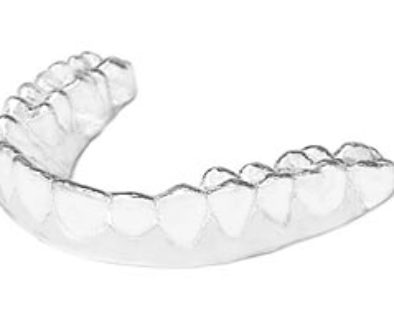Why Are My Gums Receding?
 This is a patient of mine. He’s about 30 years old and as you can see has severely receded gums. This is probably one of the worst cases I’ve seen in several years. His receded gums are a result of brushing too hard. The root surfaces of all of his teeth have some level of exposure. Receded gums can cause a multitude of different issues over the years.
This is a patient of mine. He’s about 30 years old and as you can see has severely receded gums. This is probably one of the worst cases I’ve seen in several years. His receded gums are a result of brushing too hard. The root surfaces of all of his teeth have some level of exposure. Receded gums can cause a multitude of different issues over the years.
- Root surfaces of teeth tend to be quite a bit more sensitive than the enamel that covers the crown of your tooth.
- Root surfaces also tend to develop cavities at a much higher rate than enamel surfaces. The material isn’t as hard and is more susceptible.
- As gums recede, the bone around the teeth tends to recede as well. This can hurt the foundation of the tooth and eventually lead to loose teeth.
What Causes Receding Gums?
- Brushing too hard, especially with a hard toothbrush. Always use a soft toothbrush. If you notice yourself brushing hard and developing some slightly receded areas consider investing in a nice electric toothbrush. Many of the higher end models have a pressure sensor that will light up when you are using too much pressure. Check out our recommendations here.
- Periodontal disease. Poor oral hygiene along with some other risk factors can lead to gum disease, also known as periodontal disease. This causes both the bone and gum tissue around your teeth to recede.
- Genetics. Some people are just more predisposed to receding gums.
- Grinding. Teeth that get too much pressure, generally from grinding, have a tendency to develop receding gums. A nightguard will distribute this pressure more evenly and help reduce the effects of this. I recommend either having a nightguard made or using our guide on creating your own custom mouthguard at home.
- Teeth out of alignment. Severely crowded teeth or teeth pushed out in different directions have a tendency to develop more recession. Orthodontics is your best option in these cases.
How to treat receded gums?
There are a couple of different treatment options depending on why you have receded gums.
If you have periodontal disease this needs to be treated at your dentist’s office and then you will need to work extra hard on your oral hygiene to include better brushing techniques and flossing. The first line treatment for periodontal disease is scaling and root planing.
For minor recession from brushing, oftentimes no treatment is needed as long as you adjust your brushing habits.
For more major recession or recession that is severely sensitive, you can consider having surgery to graft tissue over the receded areas. Generally this is done by a periodontist (gum specialist) who will take some tissue from the roof of your mouth and transplant it over the root surface of your tooth.



